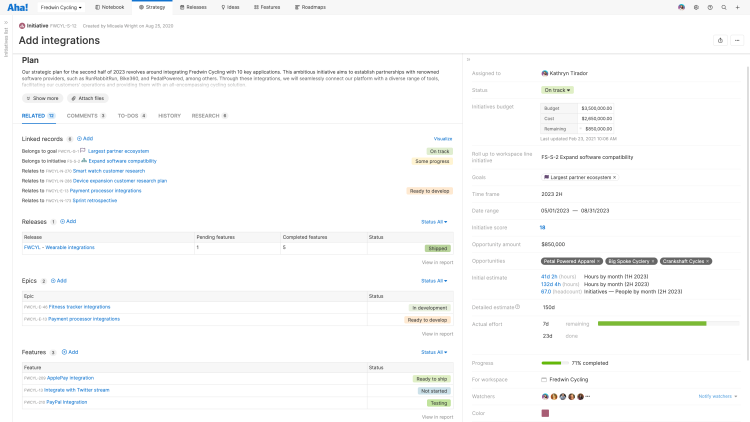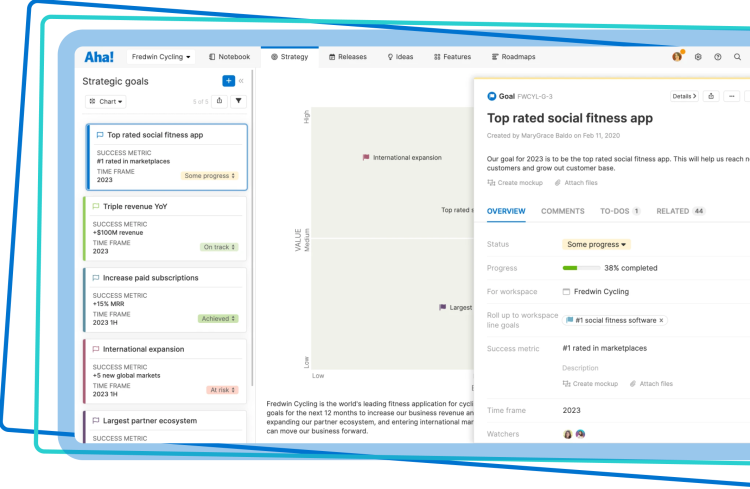
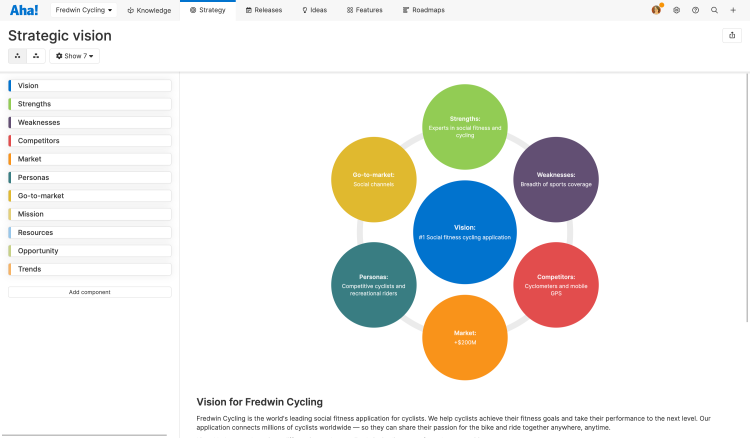
Explain the 'why'
Create a vivid picture of where you want to be in the future. That is your vision. Then, capture your business model using strategic planning templates such as Lean Canvas, SWOT, Porter's 5 Forces, Segment Profile, and 10Ps Marketing Matrix. Make better decisions faster — because your team will be aligned and able to maintain clear focus.
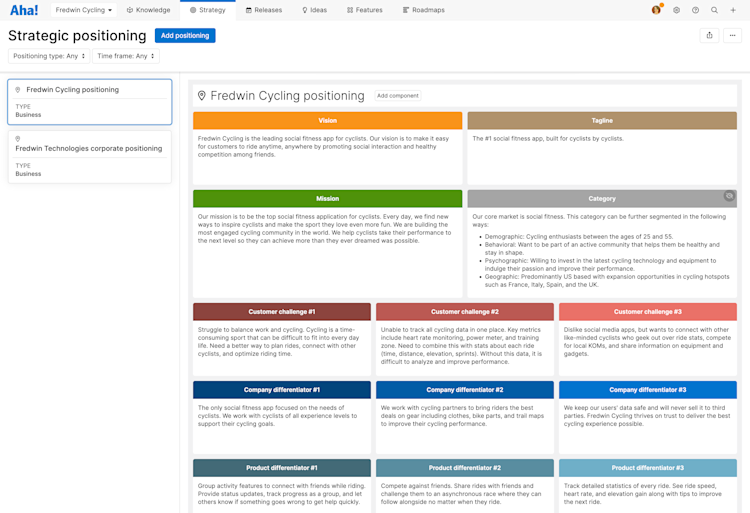
Set your positioning
Describe where your product or service fits in the market, the problem it solves, and what makes it unique. Distilling your product message to its essence empowers the broader team to articulate that value in a consistent way. This will help inform customers about why your product is the best option to meet their needs — before they even start using it.
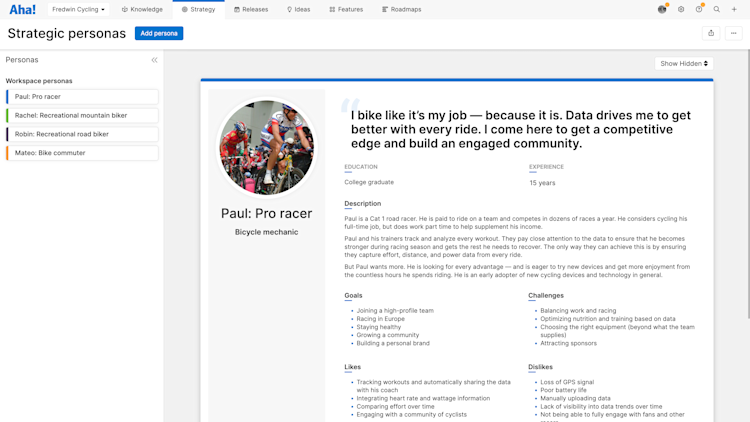
Know your customers
Paint a picture of your customers by creating buyer and user personas. It is only when you deeply understand who you are building for and why that you can serve your customers well. Describe everything about them and link those personas to actual work to keep your buyers and users top of mind.
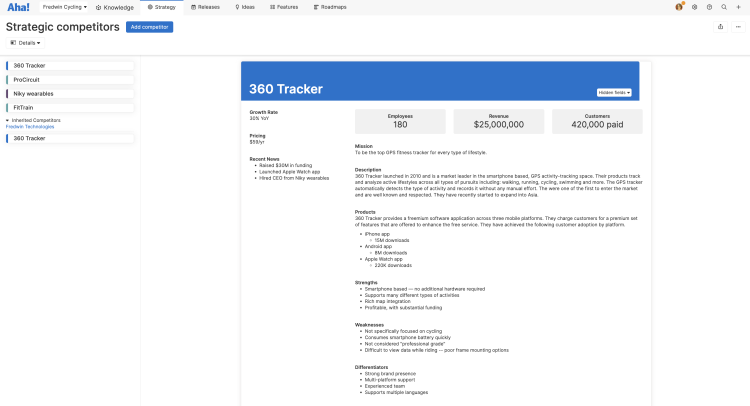
Track the competition
Create in-depth profiles of key competitors and publish that information for your team. Capture critical information such as revenue, customers, growth rate, and your own custom fields. Use a threat scorecard to assess your competitors based on product breadth, ability to execute, vision strength, and market awareness. Then, visualize the overall competitive landscape on a matrix to see how you stack up.
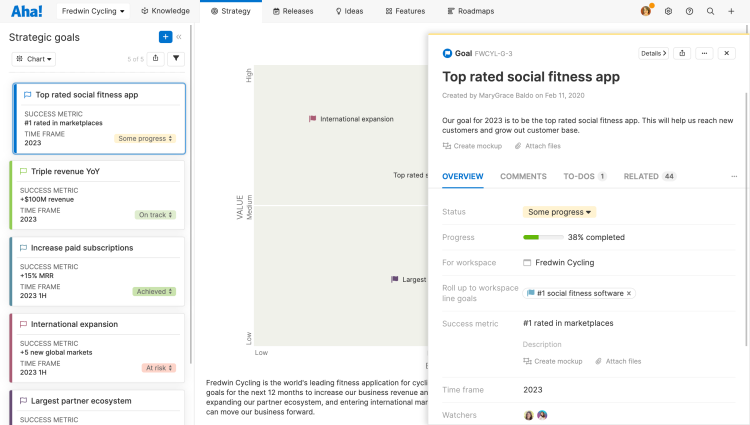
Set goals
Highlight the business goals you plan on achieving — making each one time-bound and measurable. Implement the OKR framework to align how your team manages objectives and key results. Chart your goals to compare relative value and connect each one to the underlying work to show progress against your strategy.
Identify initiatives
Determine the major workstreams that will help you realize your goals. Initiatives allow you to define the high-level efforts to invest in so you can group work under them. Add budget and revenue projections to your initiatives. This helps you make informed decisions based on investment cost or opportunity amounts. Report on these custom fields and monitor the progress of your initiatives in a meaningful way.
